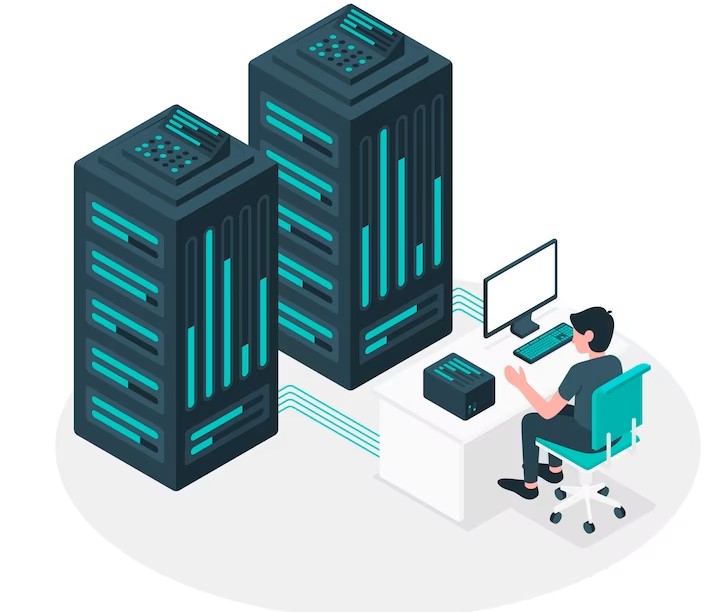Stay ahead of the curve with our in-depth exploration of the latest emerging trends in database management systems (DBMS). Learn about new technologies, approaches, and best practices shaping the future of data management.
Introduction
As technology continues to evolve at an unprecedented pace, the field of database management systems (DBMS) is no exception. New advancements, approaches, and best practices are constantly emerging, reshaping the landscape of how data is stored, processed, and managed. In this blog post, we will delve into the exciting world of emerging trends in DBMS, providing insights into the future of data management.
Cloud-Based Database Management Systems
Cloud-based DBMS are gaining traction as more organizations embrace the flexibility, scalability, and cost-efficiency of cloud computing. Cloud-based DBMS allow for easy and convenient access to data from anywhere, while also providing robust security measures and automated backups. This trend is expected to continue to grow as organizations increasingly adopt cloud-first strategies.
NoSQL and NewSQL Databases
NoSQL (Not Only SQL) and NewSQL databases are gaining popularity due to their ability to handle unstructured and semi-structured data, such as social media posts, sensor data, and multimedia content. NoSQL databases like MongoDB, Cassandra, and Couchbase offer high scalability, flexibility, and performance, making them ideal for handling big data and real-time data processing. NewSQL databases, on the other hand, aim to provide the best of both worlds by combining the scalability of NoSQL databases with the ACID (Atomicity, Consistency, Isolation, Durability) properties of traditional relational databases.
Blockchain-Based Database Management Systems
Blockchain technology, originally known for its application in cryptocurrencies like Bitcoin, is now finding its way into DBMS. Blockchain-based DBMS offer decentralized, distributed, and immutable data storage, enhancing data security, integrity, and transparency. These systems can be particularly useful in industries like finance, supply chain management, and healthcare, where data integrity and security are of paramount importance.
Data Lakes and Data Warehouses
Data lakes and data warehouses are gaining traction as organizations seek to harness the power of big data and analytics. Data lakes, such as Amazon S3 and Hadoop HDFS, offer a scalable and cost-effective solution for storing and processing large volumes of data, including structured, unstructured, and semi-structured data. Data warehouses, such as Amazon Redshift and Google BigQuery, provide fast and efficient data storage and analytics capabilities for structured data, enabling organizations to extract valuable insights from their data.
Artificial Intelligence (AI) and Machine Learning (ML) Integration
The integration of AI and ML capabilities into DBMS is revolutionizing how data is managed and processed. AI and ML algorithms are being used to automate various aspects of DBMS, such as data cleaning, data integration, and query optimization, to improve efficiency and accuracy. AI and ML are also enabling advanced analytics, predictive modeling, and data-driven decision-making, unlocking new possibilities for data management and analysis.
Data Privacy and Security
Data privacy and security continue to be top priorities for organizations, and emerging trends in DBMS are addressing these concerns. With the increasing adoption of data protection regulations, such as the General Data Protection Regulation (GDPR) and the California Consumer Privacy Act (CCPA), DBMS are incorporating enhanced security features, such as data encryption, access controls, and auditing, to protect sensitive data from unauthorized access and breaches.
Hybrid Database Management Systems
Hybrid DBMS are gaining traction as organizations seek to bridge the gap between traditional relational databases and newer, more flexible NoSQL databases. Hybrid DBMS offer the benefits of both worlds, combining the scalability and flexibility of NoSQL databases with the robustness and ACID properties of relational databases. This allows organizations to effectively manage different types of data, from structured to unstructured, within a single DBMS.
“Top 10 Best Practices for Securing Your Database Management System”
Containerization and Microservices
Containerization and microservices are gaining popularity as organizations adopt modern software development practices. Containerization technologies like Docker allow for the easy deployment and scaling of DBMS in containers, providing increased agility, flexibility, and portability. Microservices architectures, on the other hand, enable the development of modular and scalable DBMS components, allowing for more efficient and flexible data management.
Multi-Cloud and Hybrid Cloud DBMS
As organizations increasingly adopt multi-cloud and hybrid cloud strategies, DBMS are evolving to support these environments. Multi-cloud and hybrid cloud DBMS allow for data to be stored and processed across different cloud providers or a combination of on-premises and cloud environments, providing increased flexibility, redundancy, and scalability. This trend is gaining traction as organizations seek to avoid vendor lock-in and optimize their cloud computing strategies.
Edge Computing and IoT
The proliferation of edge computing and the Internet of Things (IoT) is generating vast amounts of data at the edge of the network. DBMS are evolving to handle this data at the edge, enabling real-time processing, analytics, and insights. Edge computing and IoT-driven DBMS are being used in various industries, such as manufacturing, logistics, and smart cities, to enable data-driven decision-making and optimize operational efficiency.
Data Virtualization
Data virtualization is an emerging trend in DBMS that allows organizations to access and integrate data from multiple sources, such as databases, data warehouses, and data lakes, in a unified and virtualized view. Data virtualization eliminates the need for data replication and consolidation, reducing data redundancy and providing real-time access to data across different sources. This trend is gaining popularity as organizations seek to simplify their data integration processes and enable real-time data access and analysis.
Advanced Analytics and Machine Learning within DBMS
DBMS are increasingly incorporating advanced analytics and machine learning capabilities natively within the database engine. This allows organizations to perform complex analytics and predictive modeling within the DBMS, without the need to extract and transfer data to external analytics tools. This trend is enabling organizations to derive real-time insights from their data, optimize operational processes, and drive data-driven decision-making.
Conclusion
As organizations deal with the ever-increasing volume, variety, and velocity of data, emerging trends in database management systems are shaping the future of data management. From cloud-based DBMS to NoSQL and NewSQL databases, blockchain-based DBMS, data lakes and data warehouses, AI and ML integration, data privacy and security measures, hybrid DBMS, containerization and microservices, multi-cloud and hybrid cloud DBMS, edge computing and IoT, data virtualization, and advanced analytics within DBMS, staying abreast of these trends is critical for organizations to optimize their data management strategies and gain a competitive edge in today’s data-driven world.











